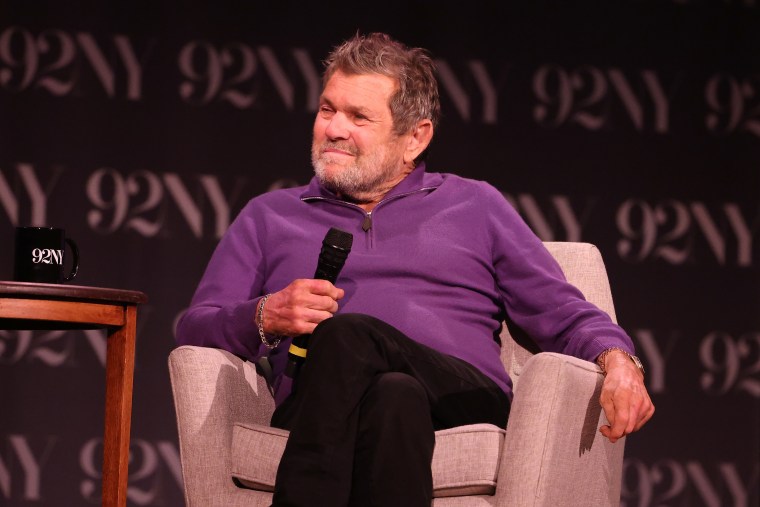Rolling Stone founder Jann Wenner let artists edit their own interviews
In a newly published New York Times interview, Wenner discusses how his friendships with high-profile artists informed his coverage of them.
 Jann Wenner. Photo by Taylor Hill/Getty Images.
Jann Wenner. Photo by Taylor Hill/Getty Images.
Rolling Stone co-founder Jann Wenner defended several historical criticisms against him in a newly published interview with The New York Times Magazine. In conversation with Wenner, David Marchese — The Times Magazine’s “Talk” columnist and a former deputy editor at Rolling Stone — holds his former boss’s feet to the fire on questions of journalistic integrity, including preferential treatment of his musician friends and the lack of fact-checking in the retracted story A Rape on Campus .
Early on in their discussion, Marchese asked Wenner whether he felt his friendships with high-profile musicians like Mick Jagger — to whose critically panned 2001 album Goddess in the Doorway he infamously gave the magazine’s highest possible rating (five stars) — had helped or hindered his interviews of the years.
“By and large, they helped,” Wenner answered. “Because the interviews I did, they’re not confrontational interviews. They’re not interviews with politicians or business executives. These are interviews with artists. They’re meant to be sympathetic, and they’re meant to elicit from the artist as deep as possible thinking that they’re willing to reveal. I think that the friendships were critical. I mean, the example of Mick Jagger — he just didn’t give interviews to anybody, and he still doesn’t. It’s because we were friends, I got him to do it.”
Continuing in the same vein, Wenner was asked to clarify the statement in his forthcoming book, The Masters: Conversations with Dylan, Lennon, Jagger, Townshend, Garcia, Bono, and Springsteen, indicating he’d let Bono edit his own interview. Responding to the question, Wenner revealed that he’d done the same for multiple artists in the past, including John Lennon:
[They were] looking for grammatical stuff, usage stuff; changing a word here and there, if he’d want to use a different word that’s more precise; maybe something was too intimate and he decides he doesn’t want to put it on the public record. I’m happy to do that with these subjects. As I said before, these are not meant to be confrontational interviews. These are profiles in a way. If I have to trade the level of trust that is necessary to get this kind of interview, to let people put a few things off the record, nothing of any value, maybe something about their kids or their family or not wanting to put down somebody. I let John Lennon edit his interview.
Another question of journalistic integrity arose when Marchese and Wenner discussed what was arguably Rolling Stone’s biggest failure in recent history: a 2014 story based on a source’s account of a brutal sexual assault at the University of Virginia, which turned out to have been made up. “Other than this one key fact that the rape described actually was a fabrication of this woman, the rest of the story was bulletproof,” Wenner said.
Later in the Times interview, Marchese asked Wenner to clarify a note in The Masters’ introduction in which he explained that the lack of inclusion of Black and women artists in the book was because they weren’t in his “zeitgeist.”
“When I was referring to the zeitgeist, I was referring to Black performers, not to the female performers,” he began his response, starting off on shaky footing. “The selection was not a deliberate selection,” he continued. “It was kind of intuitive over the years; it just fell together that way. The people had to meet a couple criteria, but it was just kind of my personal interest and love of them. Insofar as the women, just none of them were as articulate enough on this intellectual level.”
“It’s not that they’re not creative geniuses,” he went on. It’s not that they’re inarticulate, although, go have a deep conversation with Grace Slick or Janis Joplin. Please, be my guest. You know, Joni was not a philosopher of rock ’n’ roll. She didn’t, in my mind, meet that test. Not by her work, not by other interviews she did. The people I interviewed were the kind of philosophers of rock.
“Of Black artists — you know, Stevie Wonder, genius, right? I suppose when you use a word as broad as ‘masters,’ the fault is using that word. Maybe Marvin Gaye, or Curtis Mayfield? I mean, they just didn’t articulate at that level.”
Unaddressed in the newly published Times piece were allegations of sexual abuse leveled against Wenner himself in 2017, when former Rolling Stone staffer Jonathan Wells told Buzzfeed News that Wenner had assaulted him in his Manhattan apartment in 1983 before giving him a job at the magazine.